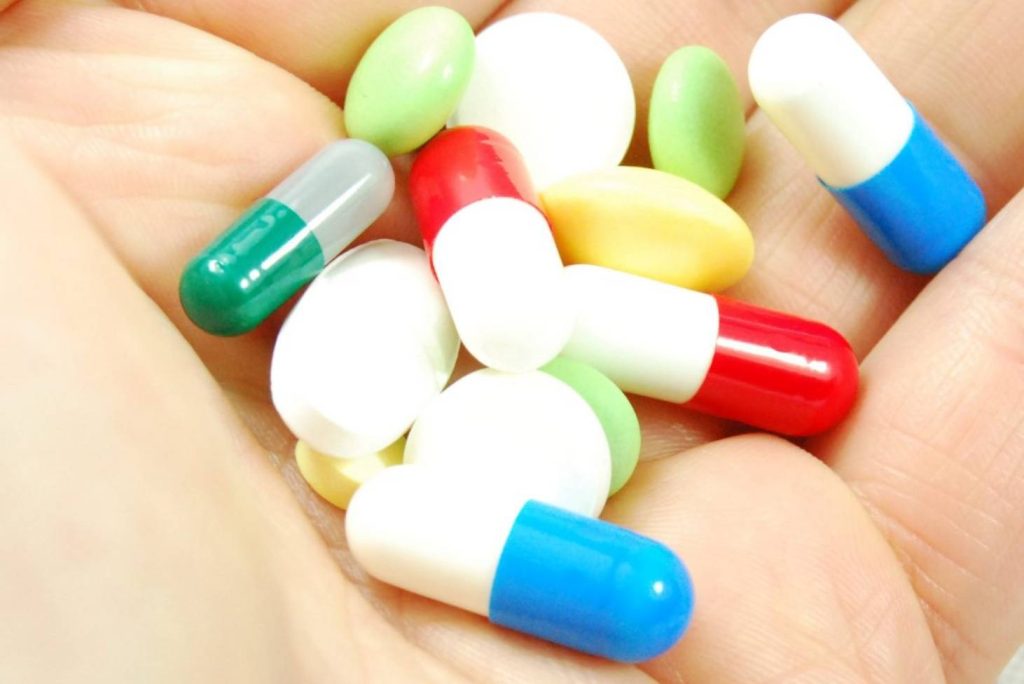If you are concerned about your prostate health, you should take a vitamin called Vitamin D. You should also take a supplement of Lycopene. Selenium and zinc are also helpful in this regard. These are good quality vitamins that can be found in most grocery stores. But, you should check with your doctor before starting any kind of diet. For best results, you should take them at least once a day. They will keep your prostate healthy.
Vitamin D
Research has shown that African-American men with high-risk prostate cancer have higher odds of aggressive disease when they are vitamin D deficient. Similarly, men with low-risk prostate cancer may also consider taking vitamin D supplements to improve their prostate health. But this vitamin is not a standard of care. While it may slow the progression of the disease, it is not a cure and should not replace conventional cancer treatments. Rather, it may reduce the risk of bone mineral density loss.
A recent study compared men who had serum levels of vitamin D to those with prostate volumes. Participants had to have elevated serum PSA levels and abnormal digital rectal examinations. The researchers then collected peripheral blood and measured vitamin D levels and volume. They then calculated the men’s vitamin D levels using a formula based on their prostate volume. The results showed that high levels of vitamin D were associated with a smaller volume of prostate in men.
Earlier research had shown that a high serum level of vitamin D was associated with a lower risk of prostate cancer. But there are conflicting findings on this claim. In the end, more studies are needed to determine if vitamin D helps control prostate cancer. It may be a preventive measure, but until then, we can still only speculate. So, the bottom line is that the more vitamin D we get, the more likely it is that we will avoid prostate cancer. Cenforce 100 mg helps in treating the problem of Erectile Dysfunction by allowing the blood to flow to the penis of a man.
The effects of vitamin D on the immune system are controversial. The dose required for the study was far below the recommended daily amount of sun exposure. It is a known antioxidant, but it may be toxic in high doses. Furthermore, it may affect calcium homeostasis. If too much vitamin D is consumed, the body will create more of the hormone, which can increase the risk of prostate cancer. However, this doesn’t mean that supplementing vitamin D isn’t a cure.
Lycopene
Consuming foods rich in lycopene may help prevent prostate cancer, according to recent research presented at the 25th Annual Research Conference of the American Institute for Cancer Research (AIC). However, such findings have yet to be published or peer-reviewed. Prostate cancer is the most common cancer in men worldwide. In the United States alone, it claims the lives of more than 27,000 men each year. The benefits of lycopene for prostate health are numerous, but the research isn’t conclusive yet.
Previous studies have shown inconsistent results, but recent research shows that tomato-based foods may be beneficial for prostate health. Raw tomatoes and tomato-based products contain lycopene, but canned tomato products are not beneficial. To reap the benefits of lycopene, buy only organic tomato products. Other foods rich in lycopene include pink grapefruit, guava, carrots, and red cabbage. The new study is the largest, most rigorous trial of lycopene and prostate health.
One study has shown that lycopene inhibits cell growth in normal human prostate epithelial cells in vitro. Flow cytometry analysis showed that lycopene inhibits the expression of cyclin D1 and cyclin E proteins. Since prostate cancer cells are highly proliferative, inhibiting cell growth has been a key method to reduce the risk of prostate cancer. It was noted that lycopene is particularly effective in inhibiting prostate hyperplasia, a precursor to prostate cancer.
In addition to these natural foods, Lycopene supplements may also promote prostate health. Studies conducted by Gann PH and colleagues showed that men with elevated levels of plasma lycopene were less likely to develop prostate cancer than those with lower plasma levels of the antioxidant. However, other studies have not found any conclusive evidence to support the use of lycopene supplements for prostate health. In addition to natural foods, lycopene supplements can be blended with watermelon or other natural ingredients to improve their effectiveness.
Zinc
Research shows that zinc has important roles in promoting prostate health. For instance, it can inhibit prostate cell growth and proliferation, and induce apoptosis. These mechanisms may be mediated by zinc’s effect on cytochrome c, the release of a protein that triggers apoptosis. Zinc’s effect on prostate cells has also been linked to the expression of NF-kB and mitochondria.
Insufficient levels of zinc can lead to a variety of complications, including prostate cancer. Prostate tissue derived from men with BPH and prostate cancer has reduced zinc concentrations by up to 80%. Men with BPH and prostate cancer also have significant increases in zinc/creatinine ratios. While prostate cells produce more zinc than prostate tissue, they excrete it in urine in higher amounts than men with BPH. Consequently, zinc deficiency can result in an increased risk of prostate cancer in men with prostate problems.
However, a large body of research has been done on the benefits of zinc supplements for men. The research showed that adequate levels of zinc protect against prostate cancer, which can lead to advanced disease. The findings of these studies also show that men with low levels of zinc may have a higher risk of developing the disease. Zinc supplements should therefore be considered for men over 40. But the evidence is not conclusive. For now, a supplement may be of no benefit.
Although research shows a positive association between low levels of zinc and the risk of developing prostate cancer, many researchers do not believe the relationship is causal. Although zinc supplements may have a protective effect in men with benign prostates, they have no effect on prostate cancer in the long-term. This is not to say that men with cancer should not take supplements of zinc. Regardless of the side effects, taking zinc supplements for long-term use is associated with a reduced risk of prostate cancer.
Selenium
The benefits of selenium for prostate health are well known, but research into the use of the mineral has been a mixed bag. Many studies have failed to confirm this, while others have found a strong connection between high selenium levels and prostate cancer. The most important question to ask is: can selenium improve the PSA marker? While this research is still ongoing, many of the same concerns regarding selenium for prostate health are relevant to everyday life.
A recent 12-year prospective monitoring study on selenium intakes found that men who took supplements of selenium for prostate health had a lower risk of developing prostate cancer. The study found that supplementing with selenium did not reduce the risk of prostate cancer in selenium-deficient men, but increased their risk of aggressive prostate cancer. For this reason, selenium for prostate health is not a panacea.
A study on a group of 33,737 men found that selenium supplementation reduced the risk of prostate cancer in men. Interestingly, men who smoked in their past had lower levels of selenium in their toenails than men who did not. This suggests that selenium supplementation may be an excellent way to prevent or delay prostate cancer. And in the long term, selenium can help prevent other health problems, such as diabetes, as well. Vidalista is the most secure and certain nonexclusive Cialis.
Although there is no clear link between selenium intake and prostate cancer risk, the results of these studies are promising. In a study by Steinbrecher et al., men who took selenium supplements were significantly less likely to develop prostate cancer, and the reduction in serum PSA correlated with a reduced risk of developing prostate cancer. The findings are compelling, but further study is needed to confirm these results. It’s important to keep an eye on selenium levels in the bloodstream, as this will further inform the understanding of selenium for prostate health.
Fish
Prostate cancer and other diseases thrive on inflammation, and inflammation can make it easier for the disease to take hold. Not all types of fish are created equal, however. In a recent study, Harvard scientists discovered that canned tuna was more inflammatory than dark-meat fish. To minimize prostate-related inflammation, eat more fish.
Those with family histories of prostate cancer are at increased risk of developing the disease. Men with family history of prostate cancer are almost double as likely to develop the disease. This link was initially thought to be due to an excessive intake of omega-3s. However, the study’s authors found that a low intake of these fatty acids was not associated with an increased risk of prostate cancer. Therefore, it’s important to include fish oil in your diet if you want to avoid prostate cancer.
If you are not a fish eater, you can obtain these fatty acids through flaxseed oil, walnuts, or soy. Fish oil is another great source of omega-3 fatty acids. Supplements of omega-3 fatty acids are available and are very easy to find. Some contain multiple minerals and vitamins for prostate health. If you want to take a daily dose of fish oil, try eating at least one serving a week.
Eating a healthy balanced diet will lower your risk of prostate cancer. Fish oil contains omega-3 fats, DHA and EPA. These fats are particularly beneficial for prostate health. The American Journal of Epidemiology study, for example, examined data from multiple prostate cancer prevention studies. This study also showed no correlation between the omega-3 fat levels and low-risk prostate cancer. However, high levels of DHA were associated with a 2.5-fold higher risk of high-risk prostate cancer.


